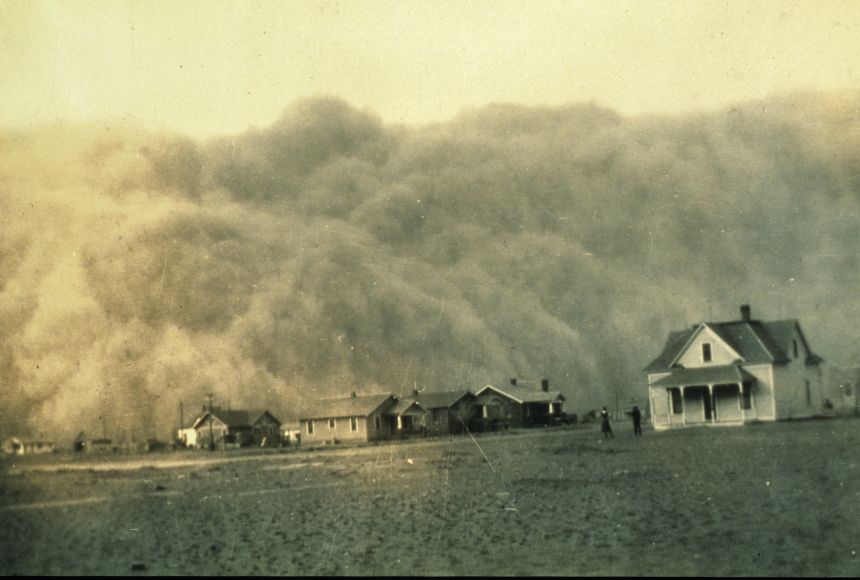ARTICLE
leveledARTICLE
Do We Treat Our Soil like Dirt?
Do We Treat Our Soil like Dirt?
Soil quality and maintenance is an often overlooked part of the health of communities, ecosystems, and even civilizations. Crop rotation and urbanization are just some of the problems affecting the sustainability of the land itself.
Grades
3 - 12
Subjects
Anthropology, Earth Science, Climatology, Social Studies, World History
Image
Dust Bowl Wind Storm
American soil scientist W.C. Lowdermilk studied other countries and ancient civilizations to learn how best to prevent more soil erosion disasters like the Dust Bowl of the 1930s.
Photograph by the World History Archive

Media Credits
The audio, illustrations, photos, and videos are credited beneath the media asset, except for promotional images, which generally link to another page that contains the media credit. The Rights Holder for media is the person or group credited.
other
Last Updated
May 9, 2024
For information on user permissions, please read our Terms of Service. If you have questions about how to cite anything on our website in your project or classroom presentation, please contact your teacher. They will best know the preferred format. When you reach out to them, you will need the page title, URL, and the date you accessed the resource.
Media
If a media asset is downloadable, a download button appears in the corner of the media viewer. If no button appears, you cannot download or save the media.
Text
Text on this page is printable and can be used according to our Terms of Service.
Interactives
Any interactives on this page can only be played while you are visiting our website. You cannot download interactives.
